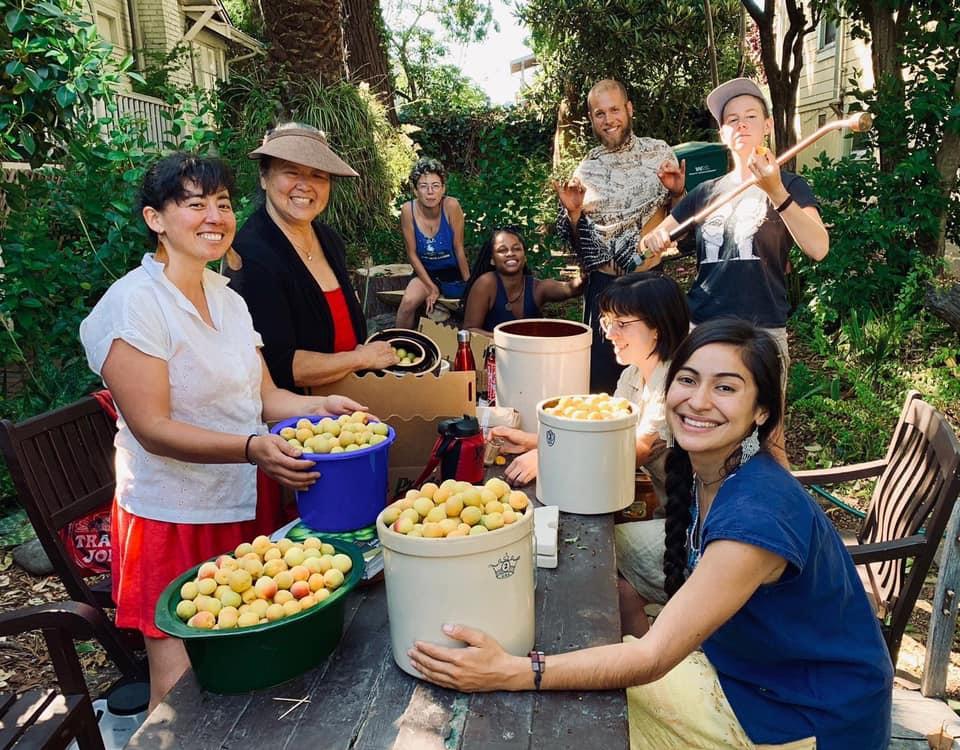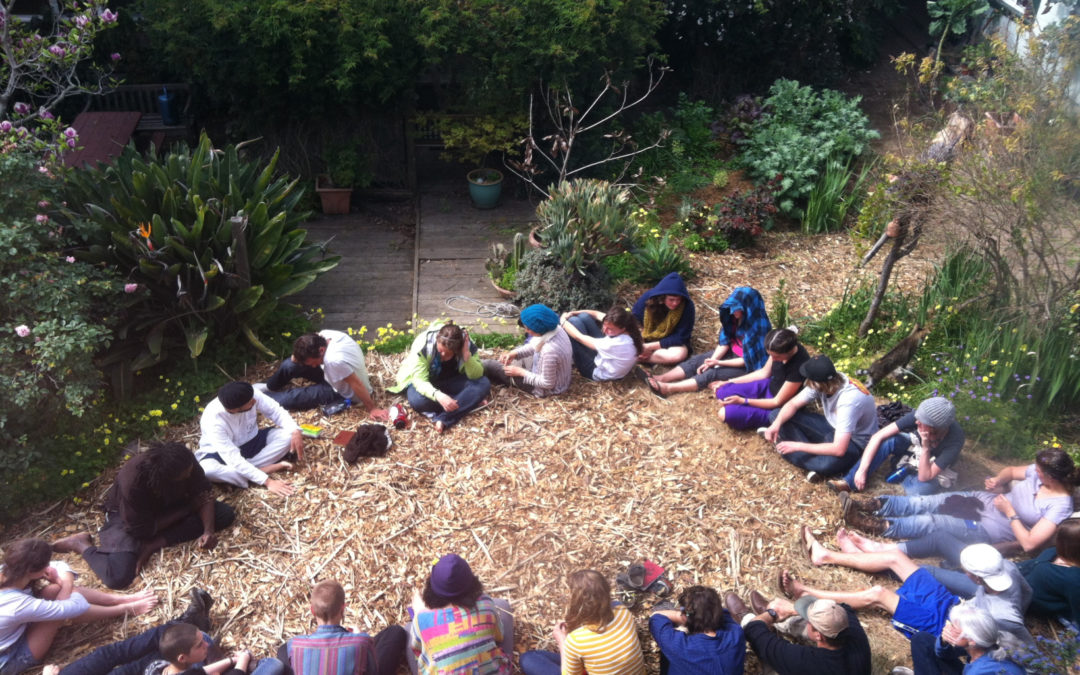In this interview, I spoke with Robin Bean Crane, who talked about the numerous and wonderful projects happening in the urban farm in Oakland. After our interview, I headed over to one of Canticle Farm’s garden parties with my friend, Ishaana, and helped them plant some tomato seeds. I also took a few pictures, which are included in this article, but to truly experience the peaceful and communal atmosphere, you might want to go support Canticle Farms by attending one of their events.
Q: Can you tell me what Canticle Farm does?
Crane: We’re an intentional community experimenting at the intersection of faith-based, race-based, and earth-based activism. It’s a platform for figuring out how to live together across differences and how to serve our hyper-local community and neighbors. Our theoretical pillars are non-violent communication, restorative justice, and work that reconnects.
Q: Can you paint a picture of what you do at Canticle Farm?
Crane: Picture seven houses between two busy streets in Fruitvale (a neighborhood in Oakland), with all the fences knocked down between them. This creates an open, common, guiding space.
These seven houses each have their mission within the larger whole. There’s a house that focuses on neighborhood work, there’s a house that focuses on restorative justice work, there’s about to be an asylum seeker program, and there was a house dedicated toward gardening and restoration. Our mission is to learn together in a beautiful way.
We have many different land projects that also fulfill this mission, such as rainwater garden beds, demonstration projects for our neighbors (on how to grow edible and native plants), and we’re trying to remove invasive plants and replace them with natives. We have a childcare program, where we have our neighbor’s kids over and take care of them. We also have a program with high schoolers, and on Thursdays we do food distribution and give out free food and herbal medicine consultations. There’s an interfaith service on Sunday, and we’re about to open a community kitchen project. It’ll be exciting where the community can come. A living, learning laboratory.
Q: Can you talk about your resilience hub work some more?
Crane: We have a solar panel and battery project. Part of the work with a resilience hub is that, when sh*t goes down, people can come and find resources. We also have food distribution services, so we want to be a place where people in the neighborhood can come, even when there’s not a disaster.
People can also come and learn about the Earth. We have a water remediation project, where we’re putting in drought-resistant plants and water remediating plants, and then filtering the water through pumping it from this really old well. We then pump that water into a fish pond, and there the fish poop and add nutrients to the water. This then gets funneled to the plants that clean the water, and then it makes its way down the land, so the creek gets cleaner and cleaner. This ties in to the creek restoration project, where we invite anyone and everyone to come help us “daylight” this creek.
It’s really deep to me, because this water has been in cement tunnels and underground for centuries and generations, and now it will get daylighted and be around bees and birds; the ecosystem will be alive again. That’s exciting! We’re inviting people to come and restore the riverbanks.
Little demonstration projects like that are part of what it means to be a resilience hub, as well actually distributing resources.
Q: Going back to something you said earlier, you said you wanted to be ready for when sh@# goes down, whether it’s the solar batteries or growing your food. What kind of disasters do you see affecting your area?
There are already the disasters of racism and capitalism, alive and well. That ends up creating food insecurity crises. So we’re working with our neighbors to avoid the charity model of food distribution, we want to plant a seed for deeper collaboration.
How do we support each other past food? One thing that we talked a lot about is having crisis intervention training, and teaching each other self defense tactics that avoid calling the police and ways to intervene in escalated situations. That happens a lot in our neighborhood, and we’re trying to train each other around that form of crisis.
In terms of natural disasters, there are earthquakes, and in that case we have our kits. We distributed a bunch of earthquake prep kits during a block party. We want to do more stuff like that: integrating emergency prep into fun stuff. In terms of fires, we distributed masks, and bought a couple of air filters for everyone in our immediate community. Another thing is the drought. A lot of our gardening work, rain garden work, native plant work, creek restoration work, is centered around how we live in a drought affected place and with water scarcity.
Q: It sounds like Canticle Farms are reaching out to the people most vulnerable in the face of climate change.
Crane: The people who live at Canticle, and who are in those populations most affected by climate change, have talked about how living in community is a part of the healing process.
Also, a lot of our neighbors have recently immigrated, and still are getting their footing in this wild society of ours. We are a place for them to ask questions, like how do I navigate the school system? How do I fill out this paper work? We also serve the wider community. There’s internal and external service work, and we try to orient that around people who have been historically oppressed.
It sounds like Canticle is at the nexus of a lot of different communities and identities! Can you tell us what’s in Canticle’s future?
We want to expand our food preservation work with our community kitchen, and invite people to come work on fermentation, canning, and preserving projects. We also want to invite them to use the kitchen space. Also, we hope to be able to stipend teams in our neighborhoods for them to do this earth-based work, whether it’s roles for youth to do food cooking and delivery, or maybe composting. We don’t have plans yet, just daydreams around taking care of our neighborhoods. No one gets paid right now, but maybe in the future, if we could stipend people, that would be great.

